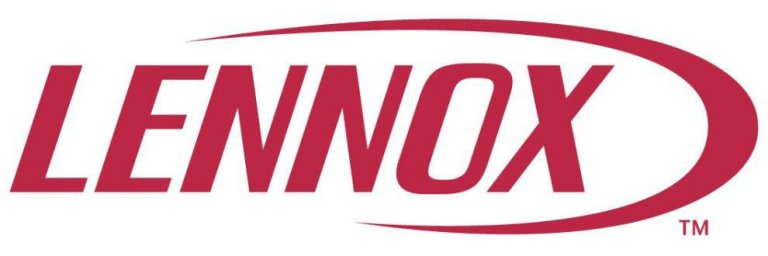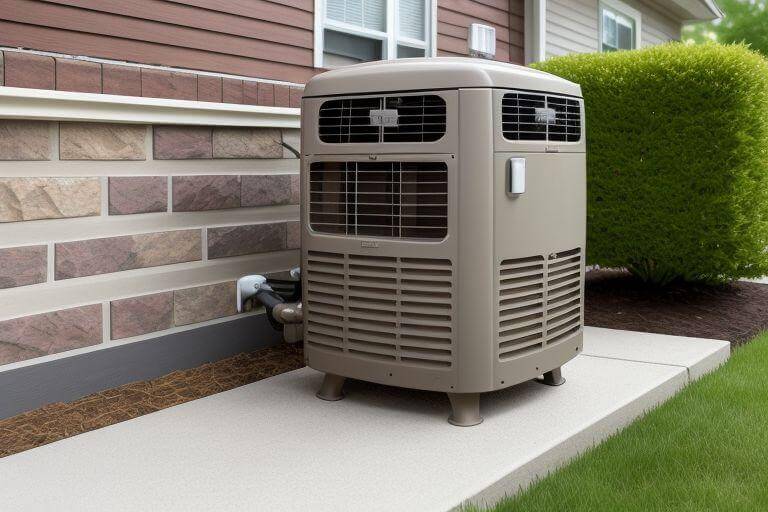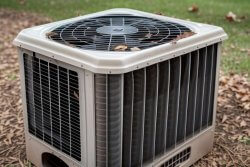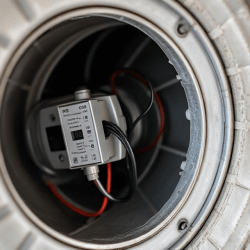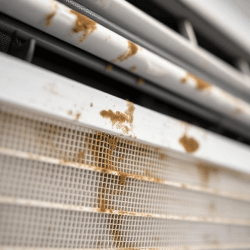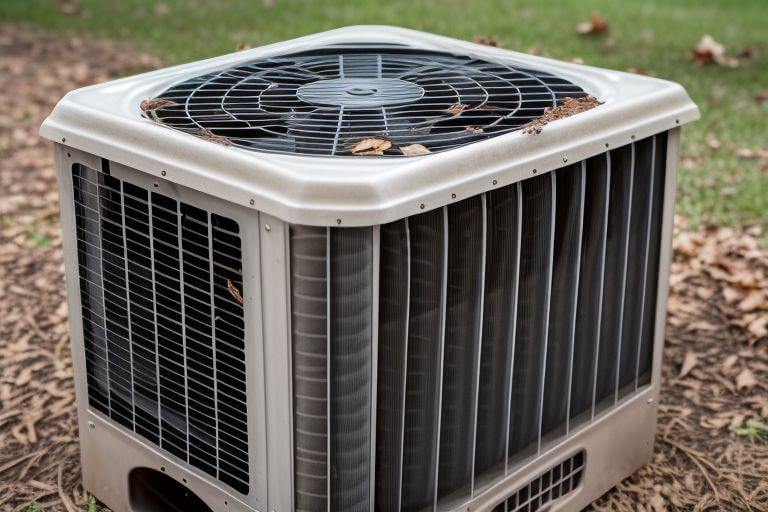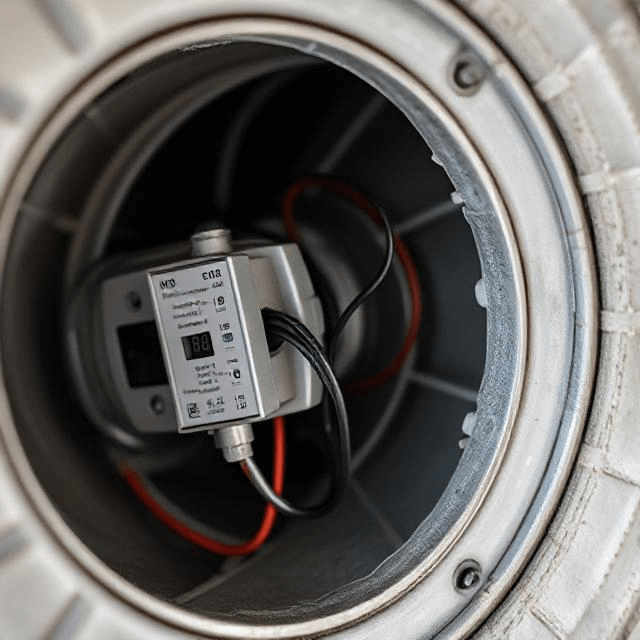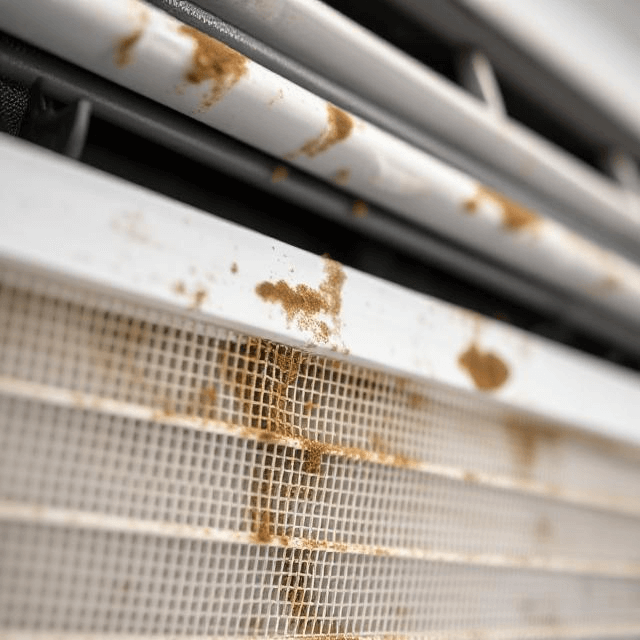Your air conditioner depends on the compressor to maintain a cool temperature in your home.
When the compressor starts to fail, your AC will struggle to cool the air, make strange noises, or even stop working altogether.
Recognizing the signs early can help you avoid bigger problems and higher repair costs. In this guide, you’ll learn the most common warning signs that your AC compressor is failing.
For a professional inspection, contact Season Control Heating & Air Conditioning at 818-275-8487. We are available 24/7 to serve the Los Angeles area with emergency air conditioner repair services.
Signs of AC Compressor Failure
When your AC compressor starts to fail, your entire cooling system struggles. Watch for these warning signs to catch problems early and avoid costly repairs.
1. Weak or Warm Airflow from Vents
If your air conditioner is not blowing cold air, the AC compressor could be struggling. A weak or warm airflow typically indicates that the compressor cannot pump enough refrigerant through the system. It may also point to a clogged air filter. Always check your air vents and air filters first. If airflow doesn’t improve, have an HVAC expert inspect your system.
2. Strange Noises Coming from the Outdoor Unit
Hearing rattling, grinding, or screeching sounds from the outdoor condenser unit is a clear sign of trouble. These noises often indicate a compressor issue or internal parts wearing down. Ignoring these warning signs can lead to complete compressor failure.
3. Breaker Keeps Tripping When the AC Unit Starts
If your breaker keeps tripping when the air conditioner starts, your compressor may be drawing too much power. This often occurs when the compressor struggles to start or overheats. Repeated breaker trips can signal serious compressor problems. It’s best to call an HVAC professional to diagnose and fix the issue.
4. AC Unit Vibrates or Shakes at Startup
A unit that vibrates heavily or shakes before starting may have a bad compressor. This behavior, known as “hard starting,” stresses your entire HVAC system. Over time, a compressor problem like this can cause damage to the condenser unit and other components. Immediate attention from a qualified HVAC expert is recommended to prevent further breakdown.
5. Refrigerant Leaks Around the Unit
Visible refrigerant leaks are a major warning sign that something is wrong with your air conditioning system. Common signs of a refrigerant leak include hissing sounds, frozen evaporator coils, or puddles of water near the outdoor unit. Ignoring a refrigerant leak can quickly lead to more significant problems, including total compressor failure. If you spot any of these signs, it’s important to call an HVAC professional right away for inspection and repair.
6. Outdoor Unit Stops Working Entirely
If your outdoor air conditioning unit suddenly stops working but the indoor fan continues to run, you could be dealing with compressor failure. The air conditioner compressor is essential for cooling the air. Without it, your AC cannot function properly. While other electrical issues can also cause the outdoor unit to shut down, a bad compressor is often the root cause. A prompt inspection by an HVAC expert can determine whether the problem is with the compressor or another critical component.
7. Higher Energy Bills Without Increased Usage
A sudden spike in energy bills, without more AC usage, often suggests your air conditioning compressor is struggling. A failing compressor must run longer and harder to achieve the same cooling, wasting energy. This inefficiency strains the air conditioners and increases your utility charges.
Common Causes of Air Conditioner Compressor Problems
Several factors can cause compressor failure and affect the performance of your air conditioning system. Understanding these common causes can help you spot warning signs early and prevent expensive repairs.
- Dirty or Clogged Air Filters: A blocked air filter restricts airflow, forcing the AC compressor to work harder. Over time, this extra strain can cause the compressor to malfunction. Regularly checking and replacing air filters helps maintain the efficiency of your air conditioning unit.
- Refrigerant Leaks: A refrigerant leak reduces pressure inside the AC system, causing the compressor to overwork in an attempt to compensate for the loss. If left untreated, refrigerant leaks can result in serious compressor problems and even total failure.
- Electrical Issues: Damaged wiring or capacitor problems can lead to compressor failure. An experienced HVAC expert should inspect electrical faults immediately.
- Overheating: Poor ventilation, a clogged condenser unit, or dirty coils can cause your AC to overheat. When the system gets too hot, it puts extra strain on the compressor. Over time, a bad compressor can fail completely, leaving your air conditioner unable to cool your home.
- Wear and Tear: Like any mechanical part, the air conditioner compressor wears out over time. Lack of maintenance, dirty components, and heavy usage can all shorten its lifespan. Routine service by an HVAC professional can extend the life of your compressor and avoid unexpected breakdowns.
- Blocked or Damaged Condenser Coils: When the condenser unit cannot release heat properly, the compressor works harder than necessary. Over time, this additional workload can lead to a compressor problem and reduce overall cooling performance.
Can a Bad Compressor Be Repaired?
In some cases, a bad AC compressor can be repaired, especially if the issue involves electrical faults or minor internal damage. However, if the compressor itself is severely worn or damaged, replacement is usually the better option. Repair costs can be high, and depending on the age of your air conditioning unit, it might be more cost-effective to install a new compressor or even upgrade to newer, energy-efficient air conditioners.
Get Fast, Reliable Help for Your Air Conditioning Unit
If you notice any of these warning signs or suspect an issue with your AC compressor, don’t wait for a total breakdown. Contact Season Control Heating & Air Conditioning today for expert service you can trust. Our certified technicians have years of experience diagnosing and repairing air conditioning compressors across all major brands.
We offer:
- 24/7 emergency repairs for your peace of mind
- Fast response times throughout the Los Angeles area
- Upfront pricing with no hidden fees
- Fully licensed and insured technicians to ensure quality service
Call 818-275-8487 to schedule an AC inspection.
FAQs
How do I know if I have a bad air compressor in my AC?
You may have a faulty air compressor if your AC struggles to cool your home, makes unusual noises, or the outdoor unit vibrates excessively during startup. Other signs include frequent breaker trips, weak airflow from vents, and higher energy bills despite no increase in usage.
Why is my AC running but not blowing cold air?
If your AC is running but not blowing cold air, it could be due to a bad air compressor, low refrigerant levels, or a clogged air filter. The compressor is responsible for circulating refrigerant, and if it is not working properly, the AC cannot cool the air effectively. Other issues, like dirty coils or electrical problems, can also prevent your system from cooling properly.
Can a compressor problem cause my AC to stop cooling completely?
A compressor problem can cause your AC to stop cooling altogether. The compressor is the core component that moves refrigerant through the system. If it fails, the AC can’t remove heat from your home, resulting in warm or no airflow. Sometimes the system may still run, but without a working compressor, it won’t be able to deliver cool air.
